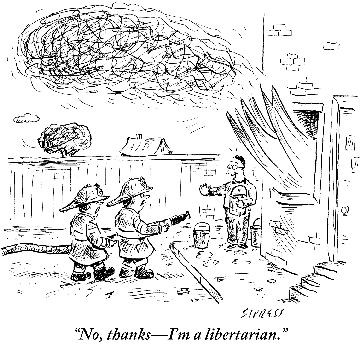Century Marks

Pay what you can: Imagine ordering what you want at a restaurant and then, instead of paying a bill, placing whatever amount you wish in a donation box. That’s what is happening in a former Panera Bread restaurant in St. Louis run by Ron Shaich, who just stepped down as Panera’s CEO. A sign at the entrance says, “Take what you need, leave your fair share.” Folks who can’t afford to pay are asked to give some of their time. Shaich plans to open more of such restaurants, to be called Panera Cares Cafes. But first the St. Louis facility must prove itself financially viable (USA Today, May 18).
Mystery worshiper: ChurchRater.com, modeled after Yelp, a Web site that allows users to rate local businesses, was launched last fall to let people rate worship services and churches. So far only 700 churches have been rated nationwide. The site also offers a consulting service: it will send persons to worship services incognito, and they will provide feedback to the congregations. The site was spawned by Hemant Mehta, an atheist. When he was a graduate student at DePaul University, he offered to attend worship services at the whim of the highest bidder on eBay. Jim Henderson, an evangelical pastor from Seattle, joined Mehta in the Web venture (Chicago Tribune, May 14).
God bless America? “If it seems obvious to today’s North Americans that their continent’s ‘discovery’ by Europeans was an event of profound importance, 16th-century Europeans were not so sure. As early as 1513 some European intellectuals suggested that if the Americas really had been important, God would have revealed their presence to the church much earlier” (Goshen College historian Steve Nolt, in an address given at the Lancaster Mennonite Historical Society, May 8).
Be angry, but sin not: In noting the angry mood of the electorate, some commentators have argued that the U.S. has always been an angry society. But historically men especially have been encouraged to channel their anger in useful ways. By the latter part of the 20th century displays of temper were considered bad form in the classroom, in the workplace and in politics. Cross-cultural studies have shown that in comparison to citizens of other countries, Americans have a high degree of concealed anger. Evangelical Christianity has added to the American ambivalence about anger, since for evangelicals expressions of anger may be a sign of sin, but they may also express God’s wrath against sin (Hedgehog Review, Spring).
Making extremists: G. Willow Wilson, an American Muslim and author of The Butterfly Mosque, thinks that Westernized Arabs living in the Middle East are the most susceptible to extremism. They don’t really fit into their own culture. “They’ve been taught that to dress and talk and act like an Arab is uneducated and lower class,” she says. But when they go to the West they don’t belong there either. “They’re cultural orphans. They’ve been lied to about who they are. That makes them easy prey for extremists, who are only too happy to provide them with a new cultural home” (Religion Dispatches, interview, May 9).
Breaking her silence: In Spoken from the Heart, Laura Bush reflects on having run through a stop sign as a teenager and caused an accident that killed her best friend. Apart from that section, critics say, the memoir is not very revealing. But Bush has made more revealing statements since the book was released—statements that indicate her distance from stances her husband took while in office. On Larry King Live she came out in support of gay marriage and legal abortions. On Fox News, she supported the candidacy of Elena Kagan for the U.S. Supreme Court. Saying she liked the idea of having three women on the highest court in the country, Bush added: “I just like women to be represented in all parts of American political and civic life” (Salon, May 12, and New York Post, May 16).
Culture warrior: “I sinned against God, my wife and my family by having a mutual relationship with a part-time member of my staff,” confessed Mark Souder as he resigned as a Republican congressman from northern Indiana. Souder was an outspoken advocate of abstinence education, and he and the woman with whom he had the affair had made a video together on abstinence legislation (CBS News, May 18).
Value of words: President Obama reported that royalties from his two books—Dreams from My Father and The Audacity of Hope—netted between $2 million and $10 million in 2009. Vice President Joseph Biden’s 2007 memoir, Promises to Keep: On Life and Politics, brought in somewhere between nothing and $200 in 2009 (Christian Science Monitor, May 18).
Father, forgive her: When a female driver hit a man walking across a street in Northhampton, Massacusetts, the police discovered that the pedestrian’s legal name is Lord Jesus Christ. Christ was taken to the hospital, treated for minor injuries and released. In an interview Christ said that “everything is part of the plan.” Although he doesn’t think the accident was intentional, he’s decided to hire a lawyer anyway (RNS).
Religious, not spiritual: In the wake of more evidence of sexual abuse cases and cover-ups in the Catholic Church, the satirical newspaper The Onion (May 5) featured an article on the imaginary Father Clancy Donahue, who believes in blindly adhering to the dogma and ceremonies of his church and tries not to get too bogged down by actual spirituality. “I’m not so much into having a relationship with God as I am into mechanically conducting various rituals. To me, it just feels empty to contemplate a higher power without blindly obeying canon law and protecting the church as an institution.”


